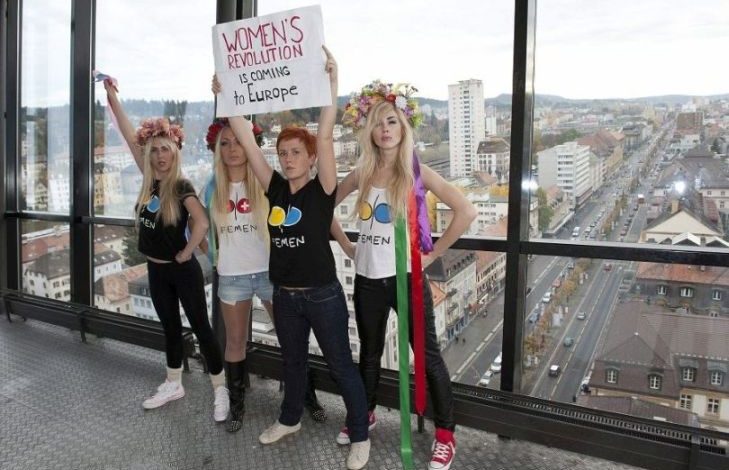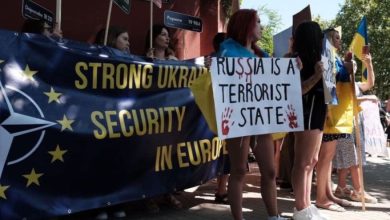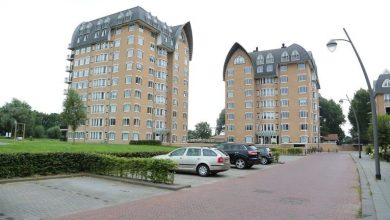Ukrainians prefer to work abroad prefer to work abroad
In Ukraine, the next outflow of labor to foreign countries has begun. True, scientists are inclined to consider a new round of labor migration not as yet another wave, but as the secondary migration of the “fourth wave”.
This was announced during a press conference by the coordinator of the project on the study of Ukrainian labor migration at the Caritas Ukraine International Charitable Fund Igor Markov.
Scientists do not distinguish a new outflow of the able-bodied population to work abroad as a new migration wave, because the previous stage of the mass departure of citizens to work has not yet ended. It’s just that the migration process after the so-called “democratic revolution” for some time slightly diminished in power, but only in order to deploy with renewed vigor in 2 years. The current migration differs from the previous ones in that mainly young people under the age of 35 take part in it. Today’s emigrants do not go to an empty place, but, as a rule, to someone: parents, husband, wife, relatives, friends, acquaintances who help visitors to get used to a foreign country.
Another trend is that Ukrainians ceased to “work hard” for the benefit of the families remaining in their homeland before self-forgetfulness and begin to acquire property abroad. So, Ukrainian emigrants buy housing on credit in Italy, Greece, Spain, Portugal, the earned money is used to satisfy personal life needs, cultural needs and try to fulfill their potential in the host countries. On the one hand, this indicates that the material, and therefore moral, state of our compatriots who found themselves abroad began to improve, and that we, as fellow countrymen, cannot but rejoice. At the same time, the same tendency testifies that fellow citizens who have left do not even think about returning, and if they come to their homeland, then perhaps only on a visit. But this is a sad fact.
According to a survey of Ukrainian migrants in Italy, Greece, Spain, Portugal, the Czech Republic and Poland, conducted by specialists of this project, about 80% of respondents declare their intention to return to Ukraine. However, almost the same percentage of respondents cannot say exactly when this can happen. In other words, the “call of heart” cannot be overcome by migrants, but reason suggests that in developed Western countries it is much better than at home.
Another result of the study suggests that the official statistics on the mass outflow of labor is very little similar to the real numbers. Thus, according to the Caritas Ukraine fund, more than 2 million Ukrainian migrants live in Russia, more than half a million in Italy, almost the same in Poland and the USA, about 250 thousand in Spain, 150 thousand in the Czech Republic, in the UK – about 70 thousand, in the Netherlands – 40 thousand
In general, over the past 5 years, more than 4,500,000 citizens have left Ukraine. To return them back to their homeland, empty declarations about caring for the population are not enough. Strategic job creation is needed – with decent working conditions and decent pay.
Today, according to expert data, there are 4 million 500 thousand Ukrainian labor migrants abroad. This was announced today at a press conference by the head of the ethnonational research sector of the Institute of Ethnic Studies of the National Academy of Sciences of Ukraine, the coordinator of the research project on Ukrainian labor migration in the host countries, Igor Markov.
In particular, according to him, in Russia there are more than 2 million Ukrainians (the official number is 169 thousand), in Italy – 500 thousand (195 thousand 412), in Poland – more than 450 thousand (20 thousand), in Spain – 250 thousand (52 thousand 760), in Portugal – 75 thousand (44 thousand 600), in the Czech Republic – 150 thousand (51 thousand), in Greece – 75 thousand (20 thousand), in the Netherlands – 40 thousand, in the UK – about 70 thousand, in the USA – about 500 thousand
At the same time, Markov noted, there is a movement of Ukrainian migrants from one region of the host country to another and from one state to another, where working conditions are better and higher pay. For example, from the Czech Republic or Portugal to Spain.
However, the expert said, there is a partial return of migrants to Ukraine, especially from Greece and Portugal. At the same time, Markov noted, in general, it can be stated that the positive dynamics of migration from Ukraine to the EU countries and Russia can be maintained.
According to Markov, in addition to the traditional areas where Ukrainian labor migrants work (servicing private premises, caring for the elderly and children, construction, the services sector in the restaurant and hotel business), there is a tendency to expand the labor market and the scope of labor from Ukraine to host countries.
Markov also noted that recently the number of migrants from Ukraine who have received legal status of residence and work in the host countries has been growing rapidly. In general, for all the studied countries, except Russia and Poland, where the majority are irregular migrants, this is about 30-35%. At the same time, according to him, there is a growing tendency for illegal entry of Ukrainians into EU countries, as well as illegal employment of Ukrainians who have a legal status of stay in one country, but in search of work move to another, where they work illegally.
Markov noted that today we are talking about “secondary migration”, when migrants come to their relatives or friends. In addition, Ukrainians buy housing on credit in Italy, Greece, Spain, Portugal. “In general, we can talk about a significant improvement in the material well-being of Ukrainians in these countries,” he said. According to Markov, Ukrainians “gradually got drawn into life” in the EU countries, for many of them respect for human rights and developed infrastructure have become familiar.
At the same time, the expert noted, there are still quite a lot of people who, due to their illegal situation, fall into slave conditions of life and work, in particular in the south of Italy and in Russia.
According to the study, about 80% of Ukrainians declare their intention to return to their homeland. However, approximately the same percentage of them cannot say with certainty when this will happen.
This post is also available in:
 English
English  Русский (Russian)
Русский (Russian)






